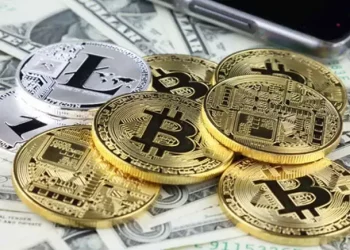Cryptocurrency has become a popular topic in India. Many people want to invest in digital currencies but are unsure about their legal status. The Indian government has not yet provided full clarity on cryptocurrency regulations. However, some cryptocurrencies are widely traded and accepted in the country. This article will explain which cryptocurrencies are legal in India and how the law treats them.
Understanding Cryptocurrency Legality in India
The legal status of cryptocurrency in India has changed over the years. In 2018, the Reserve Bank of India (RBI) banned banks from dealing with crypto-related transactions. However, the Supreme Court overturned this ban in 2020. Since then, cryptocurrency trading has been allowed, but with certain restrictions.
The Indian government has not officially declared any cryptocurrency as legal tender. This means no digital currency can be used like the Indian Rupee for payments. However, buying, selling, and holding cryptocurrencies is allowed. The government is also working on new regulations to control the crypto market.
Popular Cryptocurrencies Traded in India
Even though no cryptocurrency is officially recognized as legal tender, many are traded freely in India. Some of the most popular ones include:
Bitcoin (BTC)
Bitcoin is the first and most well-known cryptocurrency. It is widely traded in India on various exchanges. Many investors see Bitcoin as a store of value, similar to gold. The Indian government has not banned Bitcoin, so people can buy and sell it legally.
Ethereum (ETH)
Ethereum is the second-largest cryptocurrency by market value. It is popular because of its smart contract feature, which allows developers to build decentralized applications. Many Indian traders and investors hold Ethereum as part of their portfolios.
Binance Coin (BNB)
Binance Coin is the native token of the Binance exchange, one of the largest crypto platforms in the world. It is used for trading fee discounts and other services on Binance. Many Indian traders use Binance, making BNB a commonly traded cryptocurrency.
Cardano (ADA)
Cardano is a blockchain platform known for its focus on security and scalability. It is a favorite among investors who prefer long-term growth. Indian crypto exchanges list Cardano, allowing users to buy and sell it freely.
Solana (SOL)
Solana is a fast and low-cost blockchain that supports decentralized apps. It has gained popularity in India due to its high-speed transactions. Many Indian investors trade Solana on local and international exchanges.
Ripple (XRP)
Ripple is a cryptocurrency designed for fast cross-border payments. Some Indian banks and financial institutions have shown interest in Ripple’s technology. However, due to legal issues in the U.S., its trading volume in India has fluctuated.
Dogecoin (DOGE)
Dogecoin started as a meme but has become a serious investment option. Many Indian traders buy Dogecoin for short-term gains. It is legal to trade Dogecoin in India, but its high volatility makes it risky.
Polygon (MATIC)
Polygon is an Indian-origin cryptocurrency that helps scale Ethereum transactions. It is one of the few major crypto projects founded by Indians. Many Indian investors support Polygon due to its local connection and strong technology.
Government Regulations on Cryptocurrency in India
The Indian government has not banned cryptocurrencies, but it has imposed strict rules. Here are some key points about crypto regulations in India:
Cryptocurrency is treated as an asset, not as legal money. This means people can buy and sell it, but businesses cannot accept it as payment for goods and services.
Investors must pay taxes on crypto profits. In the 2022 budget, the government introduced a 30% tax on cryptocurrency gains. There is also a 1% tax deducted at source (TDS) on all crypto transactions.
The government is working on a central bank digital currency (CBDC). The digital Rupee is India’s official digital currency, controlled by the RBI. It is different from private cryptocurrencies like Bitcoin.
Exchanges must follow anti-money laundering (AML) and know-your-customer (KYC) rules. Indian crypto platforms require identity verification before allowing trades.
The government has warned people about the risks of investing in crypto. Since the market is highly volatile, investors can lose money quickly.
How to Buy Cryptocurrency in India Safely
Since cryptocurrency is legal in India, many platforms allow trading. Here are some steps to buy crypto safely:
Choose a trusted exchange. Some popular Indian exchanges include WazirX, CoinDCX, and ZebPay. International platforms like Binance and Coinbase also serve Indian users.
Complete the KYC process. Exchanges require identity proof like Aadhaar or PAN cards. This helps prevent fraud and money laundering.
Use secure payment methods. Most Indian exchanges accept bank transfers, UPI, and debit/credit cards. Avoid sharing private wallet keys with anyone.
Store crypto in a secure wallet.
Exchanges provide online wallets, but hardware wallets are safer for long-term storage.
Follow tax rules. Keep records of all transactions to report gains accurately. Failure to pay crypto taxes can lead to penalties.
Future of Cryptocurrency in India
The Indian government is still deciding on crypto regulations. Some officials support a complete ban, while others want controlled adoption. The upcoming crypto bill will provide more clarity.
The RBI prefers a complete ban on private cryptocurrencies. However, the finance ministry is considering regulations instead of a ban. This could mean stricter rules for exchanges and investors.
Many Indian startups are working on blockchain technology. The government may promote blockchain while restricting speculative crypto trading.
The digital Rupee could reduce the demand for private cryptocurrencies. If the RBI’s digital currency becomes popular, people may prefer it over unstable assets like Bitcoin.
Conclusion
No cryptocurrency is officially legal tender in India, but trading is allowed. Bitcoin, Ethereum, and other major cryptocurrencies are freely bought and sold on Indian exchanges. The government taxes crypto profits and requires exchanges to follow strict rules.
Investors should be cautious due to market risks and changing regulations. The future of cryptocurrency in India depends on government policies. Until clear laws are established, people can trade crypto but must follow tax and security guidelines.
Related Topics:














